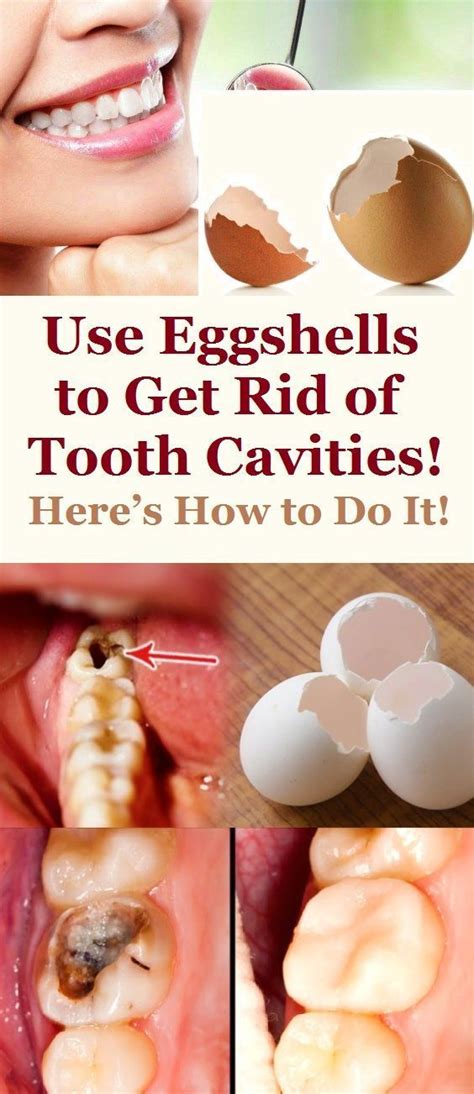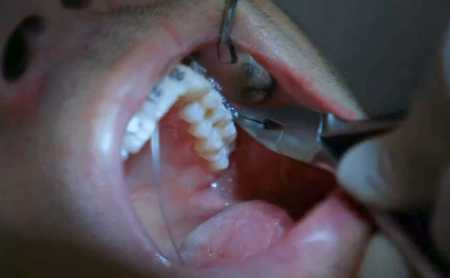12 Smelly Tooth Cavity Remedies For Fresh Breath

The pesky issue of tooth cavities and the embarrassing problem of smelly breath that often accompanies them. Tooth cavities, also known as dental caries, are bacterial infections that cause demineralization of tooth enamel, leading to damage and potentially painful consequences if left untreated. The smell associated with tooth cavities, commonly known as halitosis, can be a significant source of distress for those affected, impacting both personal and professional relationships.
Understanding the root cause of tooth cavities is essential for effective prevention and treatment. The process begins with the accumulation of plaque, a sticky film of bacteria, on the teeth. When plaque is not regularly removed through brushing and flossing, it can lead to the production of acids that damage tooth enamel, creating an environment conducive to cavity formation. Once a cavity has formed, it can trap bacteria and food particles, leading to bad breath.
Problem-Solution Framework: Addressing Tooth Cavities and Smelly Breath
To tackle the issue of tooth cavities and associated bad breath, it’s crucial to adopt a multifaceted approach that includes preventive measures, home remedies, and professional dental care.
Preventive Measures
- Regular Dental Check-ups: Regular visits to the dentist are vital for early detection and treatment of cavities. Dentists can identify cavities through visual exams and X-rays, allowing for prompt intervention.
- Proper Oral Hygiene: Brushing teeth at least twice a day with fluoride toothpaste and flossing once a day can significantly reduce the risk of developing cavities. It’s also essential to use an antibacterial mouthwash to kill bacteria that can cause cavities and bad breath.
- Dietary Changes: Limiting the consumption of sugary and acidic foods and beverages can help prevent cavities. These substances feed the bacteria in the mouth, leading to acid production and tooth decay.
Home Remedies for Smelly Breath Associated with Tooth Cavities
In addition to preventive measures, several home remedies can help alleviate smelly breath associated with tooth cavities:
- Salt Water Rinse: Rinsing the mouth with warm salt water several times a day can help reduce bacteria and inflammation, thereby decreasing bad breath.
- Baking Soda: Using a toothpaste containing baking soda or making a paste with baking soda and water to brush teeth can help neutralize acids and reduce bacteria.
- Hydrogen Peroxide: Diluted hydrogen peroxide can be used as a mouthwash to kill bacteria. However, it should be used with caution and under the guidance of a dentist to avoid damaging the teeth or gums.
- Essential Oils: Certain essential oils, such as peppermint, tea tree, and eucalyptus, have antibacterial properties that can help combat the bacteria causing bad breath. They can be added to toothpaste or used in a mouthwash.
- Chewing Sugar-free Gum: Chewing sugar-free gum after meals can stimulate saliva production, which helps neutralize acids and wash away bacteria and food particles.
Expert Insight
Technical Breakdown: Understanding Tooth Cavity Formation
Tooth cavity formation is a complex process involving the interaction of bacteria, diet, and oral hygiene practices. Here’s a step-by-step breakdown:
- Plaque Accumulation: Bacteria in the mouth accumulate on the teeth, forming plaque.
- Acid Production: The bacteria in plaque produce acids when they break down food, especially sugary and starchy foods.
- Enamel Demineralization: The acids produced by bacteria can demineralize tooth enamel, creating weak spots.
- Cavity Formation: If the process of demineralization continues, it can lead to the formation of a cavity.
Future Trends Projection: Advances in Dental Care
The field of dentistry is evolving, with advancements in technology and materials science offering new solutions for preventing and treating tooth cavities. Future trends include:
- Nano-hydroxyapatite Toothpaste: Some newer toothpastes contain nano-hydroxyapatite, which can help remineralize tooth enamel, potentially reversing early stages of tooth decay.
- Laser Dentistry: Laser technology is being used in some dental practices for more precise and less invasive treatments, including the detection and removal of cavities.
- Personalized Oral Care: With the integration of genetic testing and artificial intelligence, dentistry is moving towards more personalized care, where treatments can be tailored to an individual’s specific oral health needs and genetic predispositions.
Comparative Analysis: Traditional vs. Modern Remedies
When comparing traditional home remedies with modern dental treatments, it’s essential to consider effectiveness, safety, and the role of each in a comprehensive oral health strategy.
| Remedy | Effectiveness | Safety | Role in Oral Health |
|---|---|---|---|
| Traditional Home Remedies (e.g., Salt Water Rinse) | Variable | Generally Safe | Supplemental to Regular Dental Care |
| Modern Dental Treatments (e.g., Fillings, Laser Dentistry) | High | Safe when performed by professionals | Essential for Preventing and Treating Tooth Cavities |

Decision Framework: Choosing the Right Approach
For individuals dealing with tooth cavities and smelly breath, making informed decisions about their oral health is crucial. Here’s a framework to consider:
- Assess Current Oral Health: Evaluate the extent of tooth decay and the presence of any other oral health issues.
- Consider Professional Advice: Consult with a dentist to determine the best course of action, which may include fillings, root canals, or other treatments.
- Integrate Preventive Measures and Home Remedies: Alongside professional treatment, adopt good oral hygiene practices and consider home remedies to prevent further cavities and reduce bad breath.
FAQ Section
How often should I visit the dentist to prevent tooth cavities?
+Regular dental check-ups should be scheduled at least twice a year. However, the frequency may vary based on individual oral health needs and risk factors for tooth decay.
Can tooth cavities be reversed without professional treatment?
+In the early stages, tooth decay can potentially be reversed through good oral hygiene and the use of remineralizing toothpastes. However, once a cavity has formed, professional dental treatment is necessary to remove the decay and restore the tooth.
What are the most effective home remedies for smelly breath caused by tooth cavities?
+While home remedies can provide temporary relief, the most effective approach involves a combination of good oral hygiene practices, dietary changes, and professional dental care. Remedies like salt water rinses, baking soda, and essential oils can help reduce bacteria and alleviate bad breath.
In conclusion, managing tooth cavities and the associated issue of smelly breath requires a comprehensive approach that includes regular dental check-ups, good oral hygiene, dietary changes, and, when necessary, home remedies. By understanding the causes of tooth cavities and adopting a proactive stance towards oral health, individuals can prevent the formation of cavities, reduce the incidence of bad breath, and maintain a healthy, confident smile.

